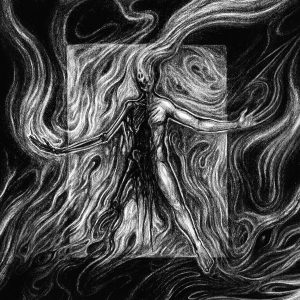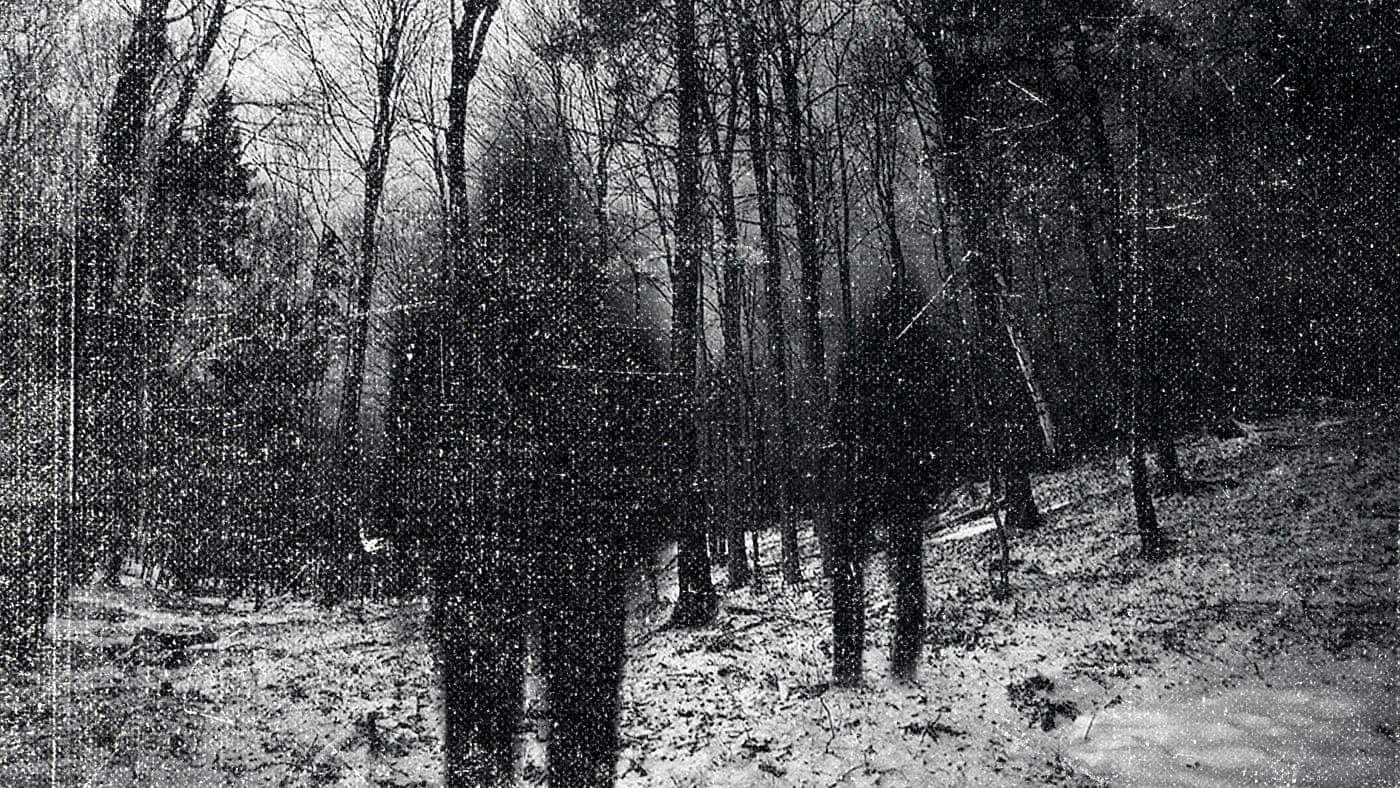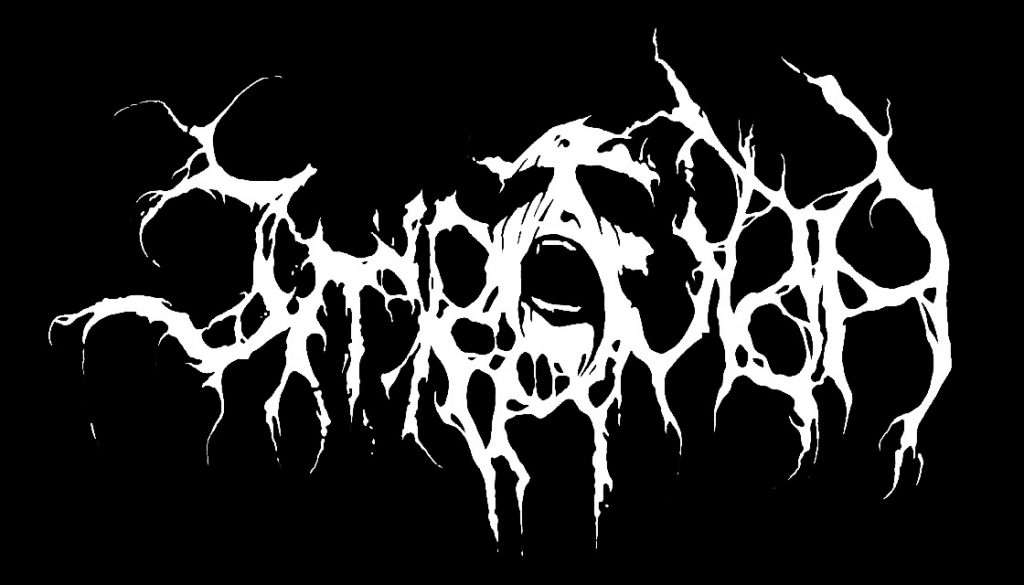We are happy to share some words with God Killing Himself, one of the two people behind Impavida, a trans-continental black metal act from Germany and USA, who gently answered our call.
Siamo liet di condividere alcune parole con God Killing Himself, una delle due persone dietro agli Impavida, un progetto black metal transcontinentale dalla Germania e America, che gentilmente ha risposto alla nostra chiamata.
Hi, thanks for your time and for your answers. We really appreciate your music and we at Semirutarum believe that “Antipode” was a real blast. But let’s get some juicy ideas from Impavida.
How do you think is it possible to link the feel of sorrow to the ones of revolt and insubordination?

First, thanks a lot for your support and appreciation of Antipode. To start right over, I’d say that sorrow and sadness are important, universal feelings which display a discontent on certain circumstances and social issues. They indeed are a leading motivator and impulse for revolting if interpreted correctly. The problem with our capitalistic narrative is, that feelings like sorrow, which evolve out of the ubiquitous classist exploitation, are not answered by solidarity, but rather with the growing individualization of people’s life in the favor of consumption. That people get told that they’re not functional according to the standards of capitalism paralyzes activist and revolting efforts. The narrative of global capitalism is therefore trying actively to destroy what we know as a class consciousness. As Adorno expressed it quite bleakly in his Minima Moralia: ‘There cannot be a right life amidst wrongs.’ But I have the feeling that more people are getting a glimpse of what causes them pain and sorrow, and that has maybe to do with the idea that more people are willing to revolt and stand up since they learned how to link their emotions to the feelings of sorrow and insubordination.
What are the main topics you assess with your songs?
Our lyrics are rather philosophical with a certain affection for unmasked brutality. Antipode is inspired by old pagan fairy-tales (no nazis in Valhalla!) and all about dichotomy and dualism. It describes on one hand the helplessness of mankind regarding natural force, on the other hand it goes on the growing impact of mankind and how it’s demise can be willingly carried by the people themselves. So even though the lyrics are written in a supposedly apolitical fashion, we left enough room to implement criticism of capitalism and exploitation of nature in a rather abstract way.
What do you think of political militancy? What are the social themes that move you the most?
It’s important to actively participate in local political and social structures, if you have access to those in your region/state. It’s a good way to improve your local (infra)structure (for example regarding the support of refugees, diversity management, public transportation and all these kind of things) and to stand up against inequalities and right-winged or centralist forces.
Do you please wanna spend some words telling something about your project and how you define it, which bands and which sounds influenced it, and if you have plans for the future. Are you considering a way to be able to perform live?

Personally, IMPAVIDA is my way to escape all terrestrial struggle and indulge myself into this dark and surreal world I’m trying to create. It’s a very abstract and symbolistic way for me to cope with personal experiences and reflections on animated and unanimated environment. Besides rather obvious influences from the Black Metal genre like STRID, there’s a bunch of other artists of various unlikely genres which had some rather implicit kind of impact. MAC DEMARCOSs way of lo-fi productions inspired me as well as the usage of dissonances and effects by SONIC YOUTH or MY BLOODY VALENTINE. Regarding IMPAVIDAs future we just released our newest record, a split-LP with VUUR & ZIJDE from the Netherlands via Prophecy Productions on 8th of May, so be sure to check that out. And no, IMPAVIDA isn’t planning to do any live show ever, we are a mere studio band.
Have you seen positive or negative changes inside what we can call “scene”. I mean in the crust/hc/black metal circle? Do you participate in your scenes? Are they lively and active?
I don’t participate for years now in any specific musical scene, but locally I can feel the rising interest and awareness of many young people when it comes to topics like patriarchy, classism, racism or fascism. I would call that a good development. But I also watch parts of the black metal scene from a distance and notice that more and more bands are willing to be political rather than hiding behind the pseudo-apolitical and centrist façade many bands love to keep up in order to not spoil their right-winged fanbase. But yeah, the scene is still full of weird bootlickers.
Since we all share antifascist ideals, how do you think the antifascists should counteract nazis in black metal?
I think that opposing fascist, racist, classist and sexist tendencies in the black metal scene, whenever and wherever they appear, is one thing we all can do regardless of our location and influence. On concerts, in pubs, on social media – fascists need to constantly be reminded that they’re not welcome in any scene. I also see a lot of bands making anti-fascist statements on social media or in interviews and I think that is a great signal to all their fans since many bands still have a large influence as a role model on their audience.
Do you have any suggestions to “spread the infection” (how to keep the flame alive and how to shine a light on the problem of fascism in music)?
Since I don’t really feel part of the black metal scene, I’m afraid not to be the right person to answer this. But I think that sensitizing the scene towards the implications and outcomes of right-winged actions is a good first step towards a better scene. The more fascist tendencies rise in black metal, the more I see the flame extinguishing.
Ciao, grazie per il tuo tempo e le tue risposte. Apprezziamo molto la vostra musica e noi di Semirutarum crediamo che “Antipode” sia stato un ottimo lavoro. Vorremmo raccogliere qualche idea dagli IMPAVIDA.
Come pensi sia possibile unire il concetto di disperazione a quelli di rivolta e insubordinazione?

Innanzitutto grazie per il vostro supporto e per l’apprezzamento nei confronti di “Antipode”. Per cominciare, vorrei dire che la disperazione e la tristezza sono sentimenti universali importanti, che mostrano il malcontento rispetto a talune circostanze e problematiche sociali. Esse, se interpretate correttamente, forniscono motivazioni ed impulsi fondamentali da cui partire per rivoltarsi. Il problema con l’attuale narrazione capitalista è che i sentimenti che evolvono dall’ubiquità classista dello sfruttamento, come la disperazione, non ricevono risposte con la solidarietà, ma piuttosto con la crescente individualizzazione della vita delle persone a favore del consumo. Alle persone viene detto che non sono funzionali rispetto agli standard del capitalismo e ciò paralizza gli sforzi d’attivismo e rivolta. La narrazione del capitalismo globale prova perciò attivamente a distruggere quella che conosciamo come coscienza di classe. Come Adorno ha espresso tristemente nel suo Minima Moralia: “Non si dà vera vita nella falsa.”
Ma ho l’impressione che sempre più persone intravedano le cause del loro dolore e della sofferenza, e che ciò è forse legato con il fatto che molte persone vogliono ribellarsi e alzare la testa perché hanno imparato come connettere le proprie emozioni ai sentimenti di tristezza e insubordinazione.
Quali sono i principali temi che affrontate nelle vostre canzoni?
I nostri testi sono piuttosto filosofici con un certo amore per la brutalità smascherata. Antipode si rifà a vecchie favole pagane (non ci sono nazisti nel Valhalla!) e tutto ciò che riguarda la dicotomia e il dualismo. Descrive da un lato l’impotenza della specie umana riguardo alla forza naturale, dall’altro lato parla del crescente impatto dell’umanità e di come la sua fine potrebbe essere prodotta consciamente dalla stessa specie umana. Quindi anche se i testi sono scritti in uno stile apparentemente apolitico, abbiamo lasciato abbastanza spazio per implementare una critica del capitalismo e dello sfruttamento della natura in un modo piuttosto astratto.
Cosa pensi della militanza politica? Quali sono i temi sociali che più ti appassionano?
È importante partecipare attivamente nella politica locale e nelle strutture sociali, se ne hai accesso nella tua regione o stato. È un modo molto buono per migliorare la tua (infra)struttura locale (per esempio il supporto ai rifugiati, il management della diversità, il trasporto pubblico e tutto questo genere di cose) e di alzare la testa contro l’inuguaglianza e le forze di destra e centriste.
Puoi spendere qualche parola riguardo al vostro progetto e come lo definite, quali band e suoni lo influenzano, e se avete piani per il futuro? State valutando un modo per potere suonare dal vivo?

Personalmente, IMPAVIDA è il mio modo per rifuggire tutte le forze terresti e per indulgere me stesso dentro ad un mondo oscuro e surreale che provo a creare. È per me una modalità astratta e simbolica per affrontare esperienze e riflessioni personali sull’ambiente animato o inanimato. Oltre a influenze abbastanza scontate dal Black Metal come gli STRID, ci sono un gruppo di artisti di generi abbastanza improbabili che hanno avuto un impatto piuttosto implicito. Lo stile lo-fi delle produzioni di MAC DEMARCO mi hanno ispirato tanto quanto l’uso degli effetti e delle dissonanze dei SONIC YOUTH o dei MY BLOODY VALENTINE.
Per quanto riguarda il futuro degli IMPAVIDA abbiamo appena pubblicato l’ultima nostra registrazione, uno split-LP con VUUR & ZIJDE dei Paesi Bassi tramite la Prophecy Productions l’8 di maggio, dategli un ascolto! E no, gli IMPAVIDA non stanno pianificando nessun live, siamo una band da studio.
Hai visto cambiamenti positivi o negativi dentro a quella che chiamiamo “scena”? Intendiamo nei circoli crust/hardcore/black metal. Partecipate nelle scene? Sono vissute e attive?
Sono anni che non partecipo in una specifica scena musicale, ma localmente vedo un crescente interesse e consapevolezza delle persone più giovani rispetto a temi quali il patriarcato, classismo, razzismo o fascismo. Mi sembra un buono sviluppo. Ma vedo anche parti della scena black metal dalla distanza e noto che sempre più band vogliono esprimersi politicamente piuttosto che nascondersi dietro ad uno pseudo-apoliticismo ed una facciata centrista che molte band mantengono giusto per non rovinare i rapporti con la propria fanbase di destra. Ma certamente, la scena è ancora piena di strani leccastivali.
Dal momento che condividiamo tutti ideali antifascisti, come credi che gli antifascisti debbano opporsi ai nazisti nel black metal?
Io credo che opporsi a tendenze fasciste, razziste, classiste e sessiste nella scena black metal, ovunque e ogni volta che appaiono, debba essere una prassi che seguiamo tutti indifferentemente dal proprio luogo ed influenza. Ai concerti, nei pub, sui social media, ai fascisti bisogna costantemente ricordare che non sono benvenuti in alcuna scena. Vedo anche molte band esporre posizioni antifasciste sui social media e nelle interviste e credo sia un ottimo segnale verso tutti i fan dal momento che molte band hanno tuttora una grande influenza e fanno da modello sulla propria audience.
Avete suggerimenti su come “diffondere la contaminazione”, ossia come tenere la fiamma accesa e come esporre il problema del fascismo nella musica?
Dal momento che non mi sento davvero parte della scena black metal, temo di non essere la persona giusta a cui porre questa domanda. Ma credo che sensibilizzare la scena verso le implicazioni e le conseguenze delle azioni della destra sia un buon inizio per produrre una scena migliore. Più le tendenze fasciste crescono nel black metal, più vedo la fiamma spegnersi.


